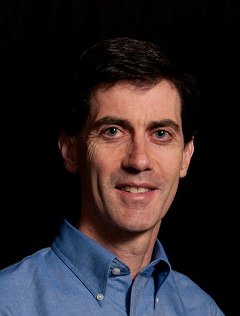Program Analysis via Graph Reachability: Past, Present, and Future [Part A]Remote
Many program-analysis problems can be formulated as a formal-language reachability (L-reachability) problem. In the literature, the best-known L-reachability problem is context-free language reachability (CFL-reachability). Specifically, the CFLs can be used to capture well-balanced program properties, such as field accesses (i.e., reads and writes), pointer indirections (i.e., references and dereferences), and context-sensitivity (i.e., function calls and returns). The purpose of this tutorial is to provide an overview of various graph-reachability frameworks, discuss recent algorithmic and complexity developments, and teach participants how to design efficient program analyses based on graph reachability. The first part of the tutorial will provide background on program analysis via graph reachability, focusing on the origin, fundamentals, and practical development of CFL-reachability. The second part of the tutorial will cover recent developments that extend CFL-reachability. We will focus on discussing asymptotically faster algorithms for Dyck-reachability and frameworks that are more expressive than CFL-reachability.
Thomas W. Reps is the J. Barkley Rosser Professor & Rajiv and Ritu Batra Chair in the Computer Sciences Department of the University of Wisconsin, which he joined in 1985. Reps is the author or co-author of four books and more than one hundred seventy-five papers describing his research (see http://pages.cs.wisc.edu/~reps/). His work has concerned a wide variety of topics, including program slicing, dataflow analysis, pointer analysis, model checking, computer security, code instrumentation, language-based program-development environments, the use of program profiling in software testing, software renovation, incremental algorithms, and attribute grammars.
His collaboration with Professor Tim Teitelbaum at Cornell University from 1978 to 1985 led to the creation of two systems—the Cornell Program Synthesizer and the Synthesizer Generator—that explored how to build interactive programming tools that incorporate knowledge about the programming language being supported. The systems that they created were similar to modern program-development environments, such as Microsoft Visual Studio and Eclipse, but pre-dated them by more than two decades. Reps is President of GrammaTech, Inc., which he and Teitelbaum founded in 1988 to commercialize this work.
At Wisconsin, Professor Reps and collaborator Professor Susan Horwitz carried out many investigations of program slicing and its applications in software engineering. Reps’s most recent work concerns program analysis, computer security, and software model checking.
In 1996, Reps served as a consultant to DARPA to help them plan a project aimed at reducing the impact of the Year 2000 Problem on the U.S. Department of Defense. In 2003, he served on the F/A-22 Avionics Advisory Team, which provided advice to the U.S. Department of Defense about problems uncovered during integration testing of the plane’s avionics software.
Professor Reps received his Ph.D. in Computer Science from Cornell University in 1982. His Ph.D. dissertation won the 1983 ACM Doctoral Dissertation Award.
Reps’s 1988 paper on interprocedural slicing, with Susan Horwitz and his then-student David Binkley, was selected as one of the 50 most influential papers from the ACM SIGPLAN Conference on Programming Language Design and Implementation (PLDI), 1979-99. According to Google Scholar, the 1988 paper and the subsequent journal version have received over 1,780 citations.
His 2004 paper about analysis of assembly code, with his student Gogul Balakrishnan, received the ETAPS Best-Paper Award for 2004 from the European Association for Programming Languages and Systems (EAPLS). His 2008 paper about a system for generating static analyzers for machine instructions, with his student Junghee Lim, received the ETAPS Best-Paper Award for 2008 from EAPLS. In 2010, his 1984 paper “The Synthesizer Generator,” with Tim Teitelbaum, received an ACM SIGSOFT Retrospective Impact Paper Award. In 2011, his 1994 paper “Speeding up slicing,” with Susan Horwitz, Mooly Sagiv, and Genevieve Rosay, also received an ACM SIGSOFT Retrospective Impact Paper Award.
Four of his students, Gogul Balakrishnan, Akash Lal, Junghee Lim, and Aditya Thakur, have been recipients of the Outstanding Graduate Student Research Award given by the University of Wisconsin Computer Sciences Department. Akash Lal was also a co-recipient of the 2009 SIGPLAN Outstanding Doctoral Dissertation Award, and he was named as one of the 18 awardees selected for the 2011 India TR-35 list (top innovators under 35).
Reps has also been the recipient of an NSF Presidential Young Investigator Award (1986), a Packard Fellowship (1988), a Humboldt Research Award (2000), and a Guggenheim Fellowship (2000). He is also an ACM Fellow (2005). In 2013, Reps was elected a foreign member of Academia Europaea.
Reps has held visiting positions at the Institut National de Recherche en Informatique et en Automatique (INRIA) in Rocquencourt, France (1982-83), the University of Copenhagen, Denmark (1993-94), the Consiglio Nazionale delle Ricerche in Pisa, Italy (2000-2001), and the University Paris Diderot—Paris 7 (2007-2008).
Mon 17 JanDisplayed time zone: Eastern Time (US & Canada) change
09:00 - 10:00 | |||
09:00 60mTutorial | Program Analysis via Graph Reachability: Past, Present, and Future [Part A]Remote TutorialFest Thomas Reps University of Wisconsin--Madison | ||
